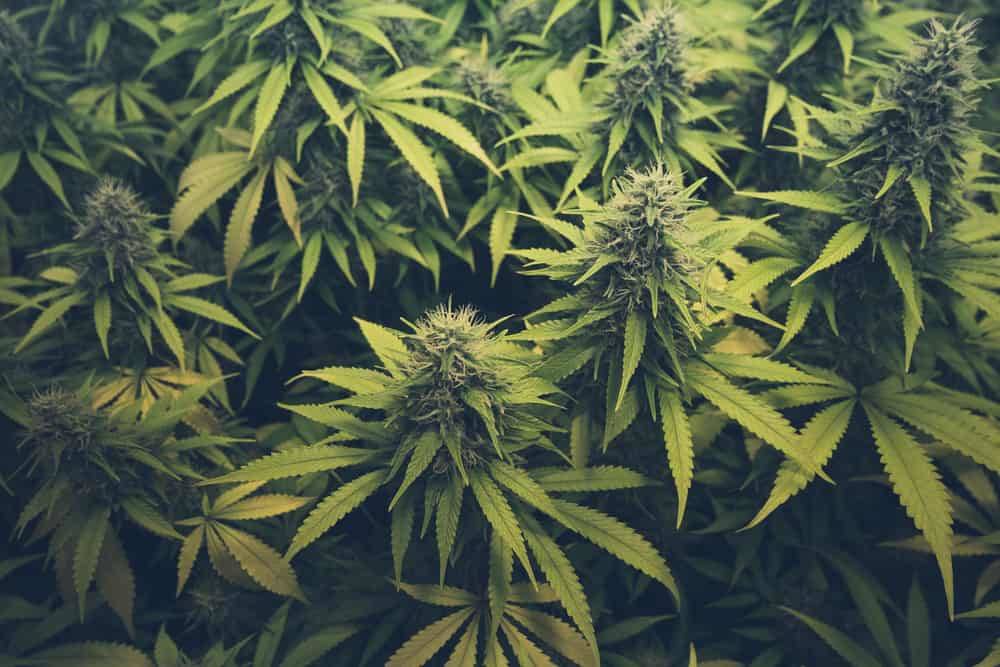“The government has been clear that provinces and territories are able to make additional restrictions on personal cultivation but that it is critically important to permit personal cultivation in order to support the government’s objective of displacing the illegal market.” — Government motion in response to Senate amendments to Bill C-45, the cannabis legalization bill.
That is the Liberal government’s rationale for rejecting a Senate amendment that would have recognized the authority of provincial governments to prohibit home-grown pot if they choose.
As drafted by the government, the bill would allow individuals to grow up to four marijuana plants per dwelling for personal use. Provinces would be allowed to further restrict that number but not ban home-grown weed altogether.
And that’s the way the bill must stay, the government argues in a motion responding to the Senate’s nearly four dozen amendments to C-45. It’s ”critically important” to permit Canadians to grow pot at home, it says, in order to support the government’s main goal of displacing the illegal marijuana market controlled by organized crime.
Is the government right?
Spoiler alert: The Canadian Press Baloney Meter is a dispassionate examination of political statements culminating in a ranking of accuracy on a scale of “no baloney” to “full of baloney” (complete methodology below). This one earns a rating of ”some baloney.”
Here’s why.
The facts
During the 2015 election, Prime Minister Justin Trudeau promised to legalize and regulate the recreational use of marijuana.
Every single day that marijuana remains illegal, Canadians are being harmed, proving that the current approach is not working, Trudeau said last month, arguing legalization would take control away from criminal organizations and drug dealers.
“Right now young people have far too easy access in Canada to marijuana. Criminal organizations make billions of dollars a year in profits on the sale of marijuana.”
Trudeau said the federal government’s decisions on such elements of the bill were developed after years of consultations with experts looking at the most effective ways to cut criminal elements out of the sale of the drug.
“The decision on home cultivation of up to four plants was based on logic and evidence and it’s one that we will continue to establish as part of the federal framework,” he said.
The experts
Not everyone is buying it.
Neil Boyd, a criminologist at Simon Fraser University, says he believes allowing home cultivation is just one tool to eliminate demand for cannabis illicitly produced by organized crime — but that it’s not the only answer.
“I don’t think it’s the major tool in terms of eliminating organized crime,” Boyd said.
He argues other elements of regulated pot will have a greater impact on Canadians opting for legal cannabis over drugs produced by non-regulated drug dealers — including offering more variety, guarantees of product safety, and better options for potencies and strains. Ensuring the price is competitive with the black market is also key, Boyd said.
Proponents of home cultivation make the case that allowing it would place cannabis on an equal footing with alcohol, which people can legally make at home. But only a small percentage of Canadians actually do make their own wine and beer, Boyd argues.
Andy Hathaway teaches in the criminal justice and public policy department at the University of Guelph and has researched cannabis use. He’s not convinced that home cultivation will significantly hurt the illicit market for pot. Most hobby growers, Hathaway says, wouldn’t be able to produce enough from four plants to rival the economies of scale, large-scale distribution networks and product quality that exist in the non-regulated market.
But he does acknowledge that home access to legal pot would divert some black market business.
“I suppose any kind of allowance for private cultivation… is going to loosen the grip of organized crime,” Hathaway says, adding his belief that a certain segment of the population will still prefer not to grow their own cannabis or go to government-sanctioned outlets to purchase the drug.
Boyd did note that in places like Colorado and Washington, where marijuana has been legal for some time, the illicit market has not disappeared, but it has “declined markedly” as a consequence of legalization.
Of the two, only Colorado permits home cultivation — and organized crime has been taking advantage, Conservative MP Marilyn Gladu told the Commons on Wednesday.
“The government is going to do what Colorado did and allow home grow,” she said. ”We can see how profitable organized crime has been there.”
The verdict
Allowing Canadians to grow a modest amount of cannabis in their home has the potential for a ”marginal displacement”of illicitly produced cannabis, as long as consumers are offered lots of options and a competitive price, Boyd says.
But government shouldn’t expect to totally wipe out the competition, Hathaway argues. So the Liberal assertion that home cultivation is “critically important” to that goal contains “some baloney.”
Methodology
The Baloney Meter is a project of The Canadian Press that examines the level of accuracy in statements made by politicians.
Each claim is researched and assigned a rating based on the following scale:
No baloney — the statement is completely accurate
A little baloney — the statement is mostly accurate but more information is required
Some baloney — the statement is partly accurate but important details are missing
A lot of baloney — the statement is mostly inaccurate but contains elements of truth
Full of baloney — the statement is completely inaccurate
Teresa Wright, The Canadian Press



